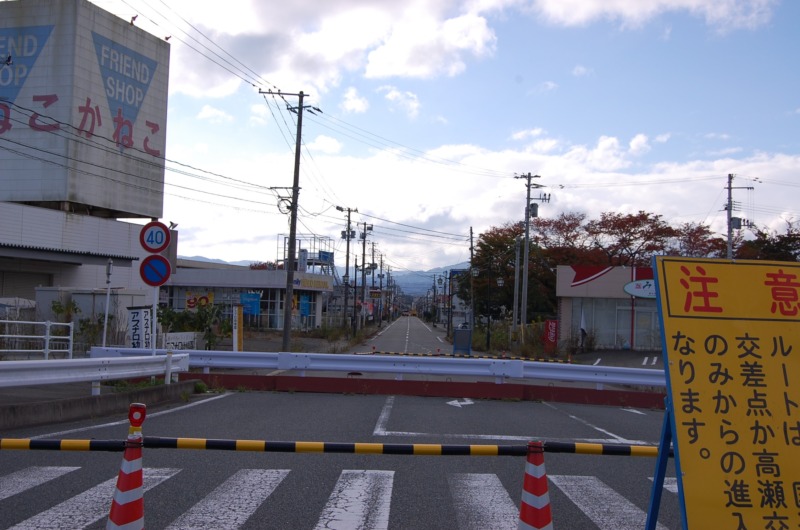Like a strobe light, memories and emotions that had been dimming for a decade returned. However, the aftershock was not just a reminder of the devastation and 20,000 deaths from 2011’s 9.0-magnitude earthquake in the Tohoku region and resulting 45-foot tsunami and nuclear disaster in Fukushima. It also prompted the Japanese church to call to mind all that God has done since.
Pastors and ministry leaders in Japan told CT of how the disaster has shaped the Japanese church and where they are headed next, providing a perspective of hope and urgency for churches worldwide amid the trials of the pandemic and current conflicts. [/toggle]
2011年の大震災は東北地域に壊滅的な損害をもたらした。一方で日本のミニストリーは、むしろ良い方向に大きく揺さぶられた。
(地震・津波・原発の)3重の被害が起こったことで知られる2011年3月11日から、ほぼ10年が経過した2月13日。同地域をマグニチュード7.3の地震が襲った。
それは、これまで抑えられていた当時の記憶や感覚がストロボライトのように蘇(よみがえ)る出来事だった。しかしそれは14メートルの津波を呼び、原発事故を引き起こし、2万人の死者を出したマグニチュード9.0の東北大震災を思い起こさせるに留まらず、日本の教会にこの10年間、どのようなことを神がなされてきたかを思い起こさせるものでもあった。
CTは現地の牧師や団体リーダーに取材をし、日本の教会の現状、そして日本の教会が向かっている方向について聞いた。緊迫しつつも希望のある日本の状況は、パンデミックの試練や様々な対立にあえぐ世界の教会にとっても有益な視点を与えている。
[toggle]Shaken and Stirred into ActionFor Yoshiya Hari, the triple disaster marked an almost immediate career and life change. Within days, the pastor of Saikyo Nozomi Chapel was assigned to help run CRASH (Christian Relief Assistance Support and Hope), organizing and allocating the masses of donated material and volunteers that were suddenly flooding into Tohoku from Taiwan, Singapore, the Philippines, the United States, and other nations.
“I was so overwhelmed. I was just a local church pastor and suddenly I was here,” said Hari, also Asian Access’s national director for Japan since 2011. “The news was broadcasting shocking scenes: the tsunami, the nuclear reactor explosion in Fukushima. There was so much fear and it felt like trials were hitting us like waves that keep coming and coming. Japan seemed almost at its end.
“But we realized that people all over the world were praying and sending support and we were encouraged,” he told CT. Organizations like CRASH helped mobilize relief efforts in Tohoku and, more importantly, established support networks of pastors and ministers across Japan that have continued for the past decade.
“Relief has its time limits,” said Hari. “But the local church has an eternal commitment.”
Japanese pastors agree that in many ways the disaster in Japan has been a catalyst for positive change.
“The spiritual atmosphere has changed and people are more open to the gospel,” said Nobuyoshi Nagai, lead pastor of Tohoku Central Church and Japan’s national director for Alpha. “Churches from all over Japan and the world now have a desire to come to Tohoku to evangelize and plant churches. Many people have accepted Christ and many churches have been planted since the disaster.”
“Small communities in the northeastern disaster area that had been notorious for limited receptivity to the gospel before 2011 have now recognized the presence and importance of the church,” said Takeshi Takazawa, a church planting veteran who currently serves as Asian Access’s vice president for innovative initiatives.
“We’ve also seen more connections within Asia,” he said. “For example, the Love Singapore movement has embraced Love Japan, and the Filipino church has a strong relationship with Japanese churches.”
Churches in Japan also now feel better prepared to address new disasters and social issues. When a large earthquake struck Kumamoto in 2016, Christians from Tohoku immediately connected with leaders there to share about their experiences and advise the response. [/toggle]
恐れに震え、行動に駆り立てられた人々
播義也(はり・よしや)牧師はこの3重の災害の直後、自身のキャリア、そして人生における大きな変化を迎えていた。埼京のぞみチャペルの牧師だった彼はすぐさま復興支援団体「クラッシュ」の運営を任され、台湾やシンガポール、フィリピン、アメリカなどの国々から大量に送られてくる支援物資や集まったボランティア人員の整理と配置にあたることとなった。
「当時は呑み込まれそうな気持ちでした。ただの一地方教会の牧師だったのに、いつのまにかこんなことになって。」「ニュースでは津波や福島原発の爆発など、ショッキングな映像が流れていました。大変な恐怖心が沸き起こって、試練が波のように押し寄せているようでした。日本は終わってしまうのではないか、と思いました」と2011年から協働団体アジアン・アクセスのディレクターを務めてきた播牧師は振り返る。
「しかし私たちは、世界中の人が祈り、支援を寄せてくれていることに気が付き、勇気をもらったのです」と彼はCTに語った。クラッシュのような団体の働きにより東北への支援物資の運搬が支援されたが、それよりも重要となったのは日本中の牧師、牧会者たちによる支援ネットワークづくりが支えられたことだった。その支援ネットワークの働きはその後の10年も続けられてきた。
播は語る。「物資には期限があります。しかし地域の教会の地理組はずっと続くのです。」
日本には、大震災は良い変化をもたらすきっかけにもなった、という認識を示す牧師も多い。
東北中央教会の永井信義(ながい・のぶよし)主任牧師は「霊的な流れが変わり、人々は福音にもっと耳を傾けるようになりました」「日本、そして世界中の教会が今、東北に来て新しい教会を立ちあげたいと願っています。そして多くの教会が立てられ、たくさんの人がキリストを受け入れてきました。」と語る。
教会開拓に長年携わってきた高澤健(たかざわ・たけし)牧師(現アジアン・アクセス副総裁、イノベーティブ・イニシアティブ部門)によると「2011年の東北大震災が起こるまで、このエリアは福音が届きにくい場所として知られていた」という。
「私たちはアジア各国とのつながりも持つようになりました。たとえばラブ・ジャパンはラブ・シンガポール運動に加えられ、フィリピンの教会は日本の教会と強いつながりを持つようになりました。」
今後の自然災害や社会問題への準備についても、日本の教会は以前よりも整えられている。2016年に熊本で震災が起こったときには、東北のクリスチャンたちはすぐさま現地のリーダーと連絡を取り、自分たちの経験とアドバイスを共有した。
執筆者はマリサ・フォックスウェル・ドゥットウェイラー
本記事は「クリスチャニティー・トゥデイ」(米国)より翻訳、転載しました。翻訳にあたって、多少の編集をしています。
出典URL:https://www.christianitytoday.com/news/2021/march/japan-christians-triple-disaster-tsunami-fukushima-churches.html
